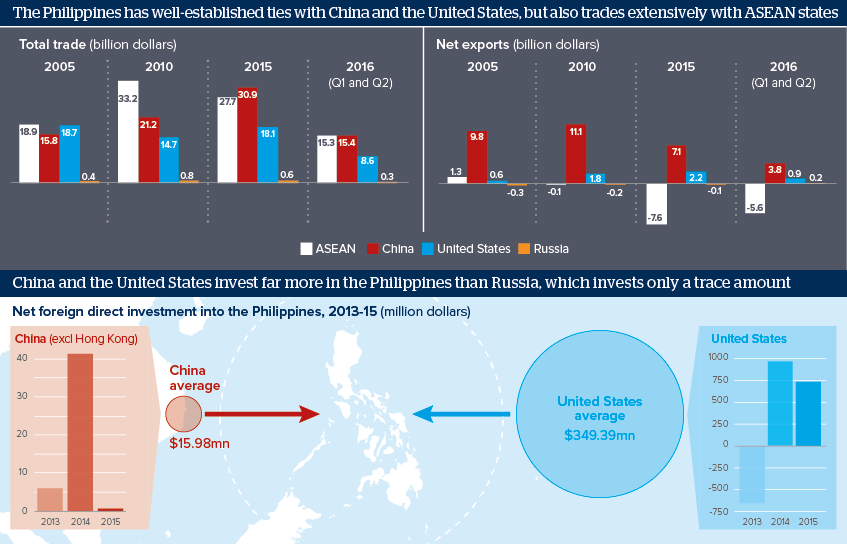Philippines to forge fresh multilateral foreign policy
The new Philippine president has a new foreign policy, emphasising China, Russia and ASEAN
Source: Bloomberg, IMF, Bangko Sentral ng Pilipinas, Oxford Analytica
Outlook
President Rodrigo Duterte pledges to forge a new "independent" Philippine foreign policy, moving from the long-established Philippines-US defence and diplomacy relationship towards stronger Chinese and Russian economic and defence ties.
After weeks chastising the outgoing US administration, Duterte welcomed US President-elect Donald Trump's election, calling for "enhanced" ties. Yet Duterte maintains that this will not divert him from strengthening links with others, also including ASEAN states.
However, the deep Philippines-US relationship will be difficult to replicate. Manila will find it easier to build economic links with China than Russia. Ties with China could be constrained by maritime disputes, even though Beijing and Manila currently enjoy warmer ties. China's economic and military might could make any talks one-sided.
Impacts
- The Philippines will seek greater investment from China and Japan particularly in infrastructure.
- Duterte will continue joint Philippine-US military exercises, though on a smaller scale.
- Manila chairs ASEAN in 2017; stronger China-Philippines ties could allow Beijing to expand its ASEAN influence.
- Strengthening ties with China could cause pro-US rallies and anti-China protests in the Philippines.
See also
- Philippines 2017-18 agenda has modest outlook - Jul 31, 2017
- ASEAN-Russia security ties will outpace trade links - Jul 4, 2017
- Martial law call could threaten Philippines’ Duterte - May 25, 2017
- Russian-Philippines naval visit points to growing ties - Jan 4, 2017
- China visit will begin Philippines' policy shift - Oct 25, 2016
- More graphic analysis
